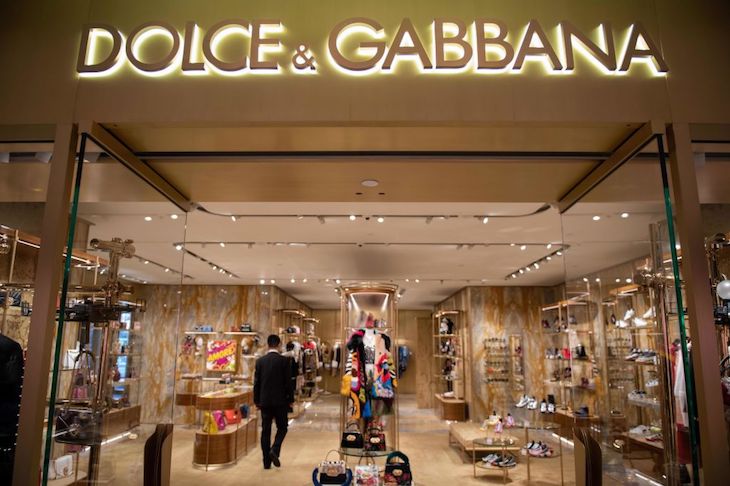Sitting in a bar in Shanghai, each person at our table is listing all the Dolce & Gabbana items they have in their closet. In a normal setting this would be crass, but today they’re deciding what to burn. Dolce is not cheap and my friends would have saved up to buy one of their pieces, yet the brand is now so unpopular that they are considering not just a boycott, but total incineration.
From social media it’s clear that we are not unique in China, where the outrage against Dolce began with their adverts for their ‘Great Show’ fashion event in Shanghai. Short video clips, which were subsequently removed from Weibo, showed a docile Chinese girl attempting to eat Italian food with chopsticks with a male voice-over.
But the trouble for D&G didn’t end there. On the day of the fashion show, Diet Prada, a site which aims to expose fashion’s dirty secrets, shared a series of private conversations in which the company’s co-founder Stefano Gabbana appeared to make numerous racist remarks in response to the advert backlash, including a reference to ‘China ignorant dirty smelling mafia’.
Within hours, the messages were trending on Weibo and celebrities and models started pulling out of the show. People began to claim that they would never purchase from the brand again, and began publicly destroying their D&G clothes on social media. Eventually, the show was cancelled; that evening, sad Italian fashionistas moped around the hotel lobbies of Shanghai, their nights suddenly freed up.
In response, Dolce & Gabbana released a statement claiming that both their and Stefano’s accounts were hacked. Stefano posted the screenshots of the messages on his Instagram with large red letters saying ‘NOT ME’ overlaid (in a move that sums up China well, T-shirts were immediately available to order from Taobao, China’s eBay, with the slogan printed across the front).
Given Stefano’s history of controversial comments on social media – he once called Selena Gomez ‘ugly’ in a post online – the claims of hacking did little to quell the damage. The next day in Shanghai, Dolce & Gabbana stores in busy malls remained empty. Within a week, almost every major Chinese retailer had dropped the label including Net-A-Porter, Alibaba and JD.com.
Despite a video apology from the founders, Shanghai is acting much like it has broken up with a lousy long-term boyfriend: it started out angry, but has now moved on without a second glance, with a determination never to return, and with the sure knowledge that Dolce will be hurt far more by the split than itself.
Dolce & Gabbana’s unraveling in China should act as a warning to other brands, not just about respecting your consumers but on the immense and terrifying power that social media has given the public. Spreading news, galvanising support and organising boycotts has never been so easy. Unlike the girl in the adverts, customers are not passive, docile creatures to be instructed and spoken over, but a force that you disrespect at your own peril.






Comments